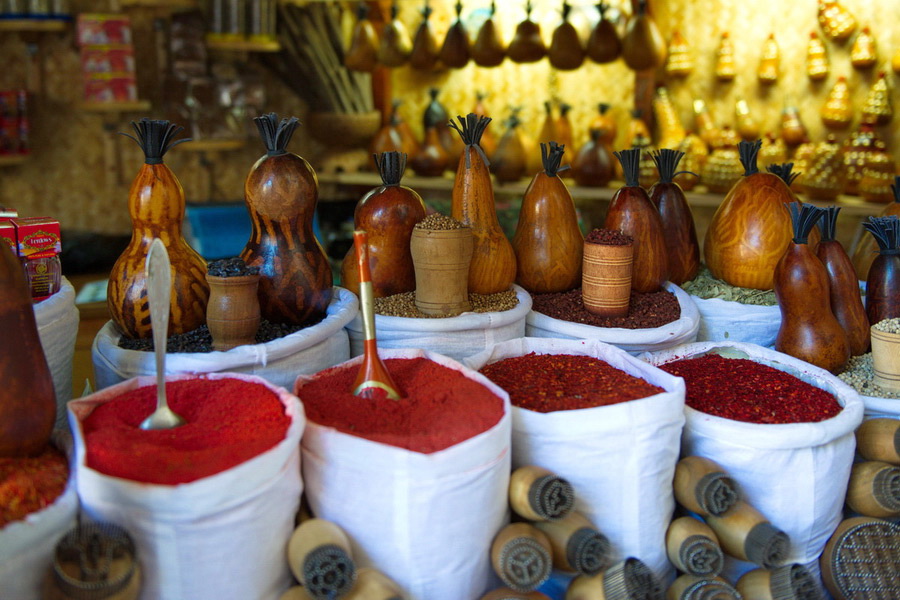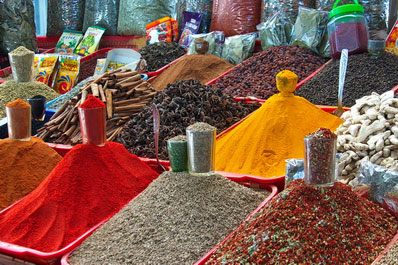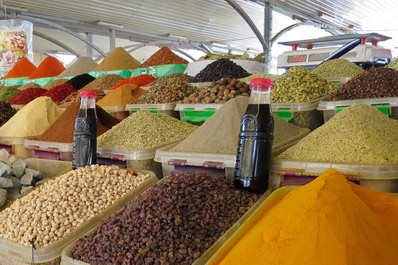Uzbek spices

Uzbek cuisine, with its rich variety of tastes, is incomplete without the array of spices and seasonings that bring an extra zest to its dishes. From cumin and coriander to cloves, turmeric, and bay leaves, these ingredients infuse Uzbek soups and mains with an unmistakable fragrance.
Zira, or cumin as it's known in many places, stands out as the cornerstone spice of Uzbek gastronomy, finding its way into everything from pilaf to the most of beef and lamb dishes.
Coriander, or cilantro, shows up in two guises in the Uzbek kitchen: both as whole seeds and in powdered form. It's a go-to for marinades and soups, while its fresh leaves are a popular garnish, adding a burst of flavor to salads and various dishes.
Sesame seeds and caraway add a finishing touch to flatbread and samsa, with black sesame or caraway gracing the savory items and light sesame seeds embellishing the sweet treats.
Paprika brings not just a splash of color but also a distinct aroma to the table, while ground red and black pepper introduce a spicy kick without veering into overly hot territory, as Uzbek cuisine typically shies away from extreme heat. Pepper, particularly black, is prized more for its ability to round out flavors rather than to scorch the palate.
Turmeric lends a vibrant yellow hue to dishes, especially pilaf, which also gets a tangy boost from dried barberries, enhancing the dish's innate deliciousness.
Bay leaves, though not eaten themselves, are a secret weapon in both soups and main dishes, infusing them with a subtle, aromatic depth.
Herbs like dill, parsley, green onions, garlic, mint, and basil are indispensable in Uzbek cooking, weaving their fresh, lively flavors through both starters and main courses, proving that in Uzbekistan, the magic of the meal lies in the blend of its seasonings.



